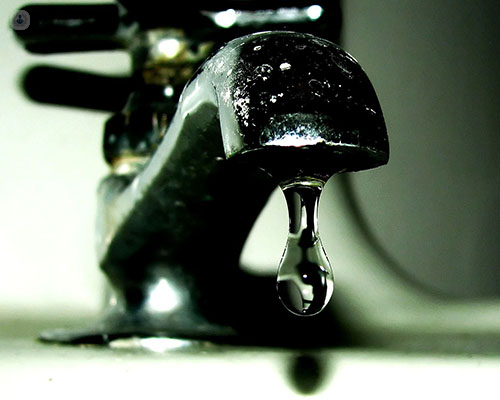Urinary incontinence: your must-know guide
Written by:Urinary incontinence is a condition that occurs as a result of the bladder failing to control the flow of urine, leading to unintentional urine passing and leakage.
In our latest article, esteemed consultant urologist, Mr Nikesh Thiruchelvam, provides us with a must-know guide with regards to urinary incontinence, including an outline of the condition’s main symptoms.

What is urinary incontinence and what are the main symptoms?
Urinary incontinence is involuntary leakage of urine. There are two main types: urge UI and urge SUI. UI is the inability to hold the urine when you get the desire to pass urine (with urgency) and SUI is when you move, cough, sneeze, or exercise, and you leak urine.
What are the main risk factors?
With female SUI, the main risk factors appear to be childbirth. Smoking and obesity can also cause SUI. In men, SUI only occurs after prostate surgery, such as benign removal of prostate tissue such as after a Holmium enucleation of the prostate for benign prostate symptoms, or, indeed, after radical surgery for prostate cancer, such as after radical robotic prostatectomy. We don’t know what causes urge urinary incontinence, but risk factors include age, and a complication of pelvic radiotherapy or pelvic surgery.
What age group and what gender is more likely to suffer from urinary incontinence?
Women suffer from SUI more than men and more commonly after childbirth. UUI is more frequent in women in their 20s to 40s, but around the 4/5th decade, it is more prevalent in men.
What other conditions is urinary incontinence a risk factor of?
Urinary incontinence can come on temporarily with a urine infection or, occasionally, with bladder stones. Uncommonly, it may occur if you can’t actually empty your bladder, so when you are suffering from urinary retention, which is also referred to as overflow incontinence.
Very rarely, UI can occur with an abnormal connection between the bladder and vagina called a vesico-vaginal fistula. This can occur after surgery or radiotherapy. Very rarely, UI can occur due to a congenital condition you are born with such as when the water pipe from the kidney opens into the vagina rather than the bladder. This is called an ectopic ureter.
What secondary conditions may increase the risk of getting urinary incontinence?
The most conditions are those that affect the relationship between the nerves and the bladder. This can be directly caused by diabetes or pelvic surgery, or neurological conditions such as multiple sclerosis, spinal cord injury, or Parkinson’s.
I see a lot of patients with neuro-urological problems that can often be assessed and treated, not only significantly improving their quality of life, but also reducing their risks of urinary tract infections, fractures, and falls.
Mr Nikesh Thiruchelvam is a highly experienced Cambridge-based consultant urologist who specialises in urinary incontinence. If you feel as though you may be suffering from the condition, contact Mr Thiruchelvam today by visiting his Top Doctors profile.


